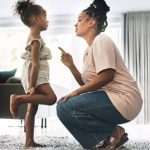As we step into 2024, the Nigerian fashion industry continues to grow and evolve, and one exciting area of growth is in children’s fashion. The days of dressing kids in simple, functional outfits are long gone. Today, Nigerian parents are increasingly becoming more conscious of what their children wear, paying attention not just to comfort and durability but also to style, trends, and cultural significance.
The world is shrinking thanks to the internet, and children in Nigeria are now exposed to fashion trends from around the globe. But, as always, Nigerian fashion retains its own unique identity—a blend of traditional elements and modern flair that is unmatched. As a result, 2024 will see some incredible trends in children’s fashion that draw on a wide range of influences, from African heritage to Western pop culture, while prioritizing creativity, comfort, and affordability. In this blog post, we’ll explore the key trends that are set to dominate Nigerian children’s fashion in 2024.
1. Afrocentric Prints and Patterns: The Everlasting Love for Ankara and Adire
One of the strongest trends that continues to thrive in Nigerian children’s fashion is the use of traditional African prints such as Ankara and Adire. These prints have been a staple for decades and continue to evolve in both design and usage. The beauty of these prints lies in their versatility. You’ll find everything from floral motifs, geometric designs, to tie-dye patterns, which reflect both the rich history of Africa and modern creativity.
In 2024, parents are expected to experiment even more with these prints, incorporating them into both casual and formal wear for children. Ankara jackets, skirts, shorts, and even shoes are going to be very popular. Designers are fusing Western styles like blazers, jumpsuits, and maxi dresses with traditional fabrics to create a distinct blend of modern and African aesthetics. This ensures that children not only look trendy but also stay connected to their cultural roots.
What’s more, the appeal of Ankara and Adire is their unisex nature. Boys and girls alike can rock these prints, whether it’s an Ankara shirt for a boy or an Adire dress for a girl. And given Nigeria’s year-round hot weather, the light and breathable nature of these fabrics make them ideal for children.
2. Sustainability and Ethical Fashion: A New Consciousness Among Nigerian Parents
In recent years, there has been a growing movement toward sustainable and ethical fashion globally, and Nigeria is no exception. This shift is beginning to influence how Nigerian parents dress their children. With concerns about climate change, resource depletion, and waste, parents are starting to demand clothing that is eco-friendly and sustainable.
In 2024, expect to see an increase in the use of organic cotton, recycled materials, and upcycled clothing in children’s fashion. Local Nigerian brands are increasingly focusing on sustainability, and we will see more parents opting for clothes that are not only fashionable but also kind to the planet.
This trend is also driven by the desire to support local artisans and businesses. Brands that focus on handmade clothing, fair trade, and local craftsmanship are gaining popularity. By buying from these brands, parents are making a statement—they want quality clothing that doesn’t harm the environment and supports the local economy. More Nigerian parents are keen on teaching their children about the importance of sustainability, and this trend will continue to influence fashion choices in the coming years.
3. Comfort-Driven Style: Athleisure for Kids
If there’s one thing parents across the world can agree on, it’s that children need to be comfortable. Gone are the days when kids were forced into stiff, restrictive outfits. In 2024, athleisure—a trend that blends athletic and leisurewear—will continue to dominate children’s fashion in Nigeria. This style is all about comfort, mobility, and versatility.
Athleisure outfits such as joggers, hoodies, leggings, and sneakers are perfect for active kids who are always on the move. Nigerian children, like children everywhere, need clothes that allow them to run, play, and explore their environment freely. With athleisure, children can look stylish while staying comfortable.
What’s even better is that athleisure can be dressed up or down depending on the occasion. For instance, a girl could wear a pair of leggings and a stylish hoodie to a birthday party, or a boy could wear a tracksuit for a casual family outing. The neutral tones that are often seen in athleisure wear also make it easy for parents to mix and match pieces, giving children more variety in their wardrobe.
4. Gender-Neutral Fashion: Breaking Boundaries
In 2024, we’ll see more Nigerian parents embracing gender-neutral fashion for their children. This trend, which is gaining traction worldwide, is about moving away from the traditional “blue for boys, pink for girls” mentality and allowing children to express themselves freely through their clothing.
Gender-neutral clothing often features neutral colors like grey, white, beige, and black, and simple designs that work for both boys and girls. These pieces tend to be more versatile and can easily be passed down from one child to another, regardless of gender. For parents with multiple children, this is a practical trend, as it allows for more flexibility and reduces the need to buy separate wardrobes for boys and girls.
More Nigerian brands are beginning to offer unisex clothing lines for children, and this trend is expected to grow in 2024. We’ll see more gender-neutral t-shirts, pants, jackets, and even accessories like hats and backpacks. By embracing this trend, Nigerian parents are encouraging individuality and self-expression in their children from a young age.
5. Kids Dressing Like Their Parents
Another trend that has been gaining momentum in Nigerian children’s fashion is mini-me fashion—where children dress in outfits that resemble their parents’ clothing. This trend is popular not just in Nigeria but globally, as it gives parents and children an opportunity to bond over fashion and create adorable matching outfits.
In 2024, we’ll see more Nigerian families opting for matching Ankara outfits, where both parents and children wear the same fabric but in different styles. For example, a mother might wear an Ankara gown while her daughter wears a matching dress. Likewise, fathers and sons might wear matching Agbada or Kaftan outfits for special occasions like weddings or church services.
The mini-me trend isn’t limited to traditional attire, though. Parents are also keen on dressing their children in Western-style outfits that mirror their own, from matching jeans and t-shirts to coordinated casual wear. This trend is all about family unity, fun, and expressing a shared sense of style.
6. Technology-Inspired Fashion (LED Clothing and Smart Fabrics)
Technology continues to play a big role in fashion, and children’s fashion in Nigeria is no exception. In 2024, we’ll see more technology-inspired clothing for kids. This includes everything from LED clothing that lights up to smart fabrics that change color based on the temperature or environment.
While this trend is still in its early stages, it’s something that will catch the attention of tech-savvy parents and children alike. LED sneakers, for example, have already become popular in Nigerian markets, with kids loving the idea of shoes that light up as they walk. In 2024, expect to see more innovations in this space, with clothing that incorporates fun, interactive elements.
Although these tech-inspired outfits may not be for everyday wear, they will definitely be a hit for special occasions like birthdays, holidays, or other celebrations. Nigerian kids love anything that is fun and attention-grabbing, and parents who want to make their children stand out will definitely be drawn to this trend.
7. Bold, Playful, and Functional
No outfit is complete without the right accessories, and in 2024, statement accessories will be a key part of Nigerian children’s fashion. We’re talking about bold hats, colorful scarves, playful backpacks, and eye-catching jewelry designed specifically for kids.
Headwraps and hair accessories are particularly popular among Nigerian girls, with styles that reflect both traditional influences and modern trends. We’ll see more girls wearing beaded hairbands, turban-style wraps, and bow clips that add a fun touch to their outfits. For boys, caps and sunglasses will be essential accessories, perfect for completing a laid-back, cool look.
Functional accessories like water bottles, lunch bags, and fanny packs are also becoming more stylish. In 2024, expect to see more brands offering these accessories in fun designs and bright colors that appeal to kids while also serving a practical purpose.
8. A Blend of Global and Local Trends (Cultural Fusion)
Nigeria is known for being a melting pot of cultures, and this is reflected in its fashion. In 2024, Nigerian children’s fashion will continue to blend local and global trends, creating a unique and dynamic style. This fusion of cultures allows parents to dress their children in a way that reflects both modern influences and their cultural heritage.
For instance, we’ll see more children wearing Western-style outfits like jeans and t-shirts but pairing them with traditional accessories like beaded necklaces or Ankara shoes. Likewise, we’ll see children wearing Agbada or Buba styles but with a modern twist, such as pairing them with sneakers or using bold, bright colors.
This blending of cultures not only makes children’s fashion more interesting but also gives them the opportunity to learn about and appreciate different cultures from a young age.
9. The Rise of Nigerian Children’s Fashion Influencers
With the increasing influence of social media on fashion, it’s no surprise that children are also becoming part of the trend-setting community. In 2024, expect to see more Nigerian children’s fashion influencers shaping the fashion choices of their peers. Parents are sharing photos and videos of their well-dressed children on platforms like Instagram and TikTok, and some children are becoming mini-celebrities in their own right.
These young influencers are often styled in the latest trends, and their outfits are a mix of high fashion, local brands, and custom-made pieces. As a result, other parents are looking to these influencers for inspiration on how to dress their kids. Some Nigerian fashion brands are also starting to collaborate with these young influencers to showcase their latest collections, creating a powerful synergy between online popularity and the retail market.
The role of social media in fashion can’t be overstated. Many parents, especially younger ones, are highly connected to platforms like Instagram, where they follow fashion pages for ideas on how to dress their children. This trend of turning to influencers for inspiration is set to grow even more in 2024, further driving the evolution of Nigerian children’s fashion.
10. Traditional Ceremonial Attire: Preserving Heritage in Fashion
In Nigeria, cultural and religious ceremonies play a big part in family life, and children’s fashion during these events remains a major focus for parents. Whether it’s for a wedding, naming ceremony, birthday party, or Christmas celebration, traditional attire is still very much in demand.
For 2024, the trend in ceremonial fashion for children leans toward luxurious fabrics and exquisite designs. Boys will continue to be dressed in well-tailored Agbadas, Kaftans, or Senator suits, often with detailed embroidery and paired with matching caps. For girls, expect to see more Asoebi-style dresses, complete with lace, tulle, and intricate beadwork, often accompanied by beautiful headwraps or gele.
Parents are keen on dressing their children in outfits that not only adhere to tradition but also showcase a bit of modern elegance. This blend of the old and the new is particularly prominent during important cultural events, where children are expected to represent the family’s values and heritage through their attire. Richly colored fabrics such as velvet, brocade, and silk will be used more in 2024 for children’s ceremonial wear, emphasizing the importance of tradition while keeping the styles contemporary.
11. Inclusive Fashion: Clothing for Children with Special Needs
Another important trend emerging in Nigerian children’s fashion for 2024 is the rise of inclusive fashion. More brands are beginning to recognize the need for clothing that caters to children with special needs, whether it’s for physical disabilities or sensory sensitivities.
Inclusive fashion for children prioritizes both comfort and functionality without compromising style. For example, clothing for children with sensory sensitivities might feature soft, tagless fabrics to avoid discomfort, while outfits for children with mobility challenges could include easy-to-use fasteners like zippers instead of buttons or Velcro straps for easier dressing.
This growing attention to inclusivity is a sign of positive progress in the Nigerian fashion industry. It acknowledges that all children deserve to feel confident and comfortable in their clothes, regardless of their physical abilities. In 2024, we’ll see more Nigerian brands stepping up to create fashion that accommodates children with special needs, ensuring that fashion is truly for everyone.
12. Customization and Personalized Fashion: One-of-a-Kind Outfits
One thing Nigerian parents love is giving their children a unique look, and customization is a major trend that will dominate in 2024. Parents are seeking out designers who can create personalized clothing for their kids, allowing them to stand out from the crowd.
Customization can be as simple as having the child’s name embroidered on their outfit or as elaborate as designing an entirely new garment from scratch. Whether it’s for a special occasion or just everyday wear, parents are increasingly leaning toward one-of-a-kind outfits that are tailored to their child’s personality, preferences, and measurements.
This trend extends to accessories as well. Personalized backpacks, lunch bags, and even shoes with the child’s name or initials are becoming more popular. Parents appreciate the uniqueness that customization brings, and children love the idea of wearing something that feels like it was made just for them.
13. Bright Colors and Bold Statements: Fashion as Self-Expression
2024 will also be a year of bold, vibrant colors and statement pieces in Nigerian children’s fashion. Kids’ fashion is no longer limited to muted tones or overly simplistic designs. Nigerian children are stepping into a world where fashion is an exciting form of self-expression, and bold colors play a major role in that.
Expect to see bright yellows, electric blues, deep reds, and neon greens making waves in children’s fashion. These colors aren’t just fun; they allow kids to express their energy, joy, and individuality. Bold patterns—whether it’s polka dots, stripes, or abstract prints—will also be prominent in 2024. Fashion for Nigerian children is moving toward more playful, experimental designs that let their personalities shine through.
Designers are also pushing the envelope when it comes to mixing and matching different patterns and textures, encouraging kids to embrace their creativity through fashion. From color-blocked shirts to multicolored sneakers, Nigerian children’s fashion is all about celebrating individuality and boldness in 2024.
Conclusion
The landscape of Nigerian children’s fashion in 2024 is one filled with creativity, inclusivity, and cultural pride. The trends that are emerging reflect the values of modern Nigerian parents, who want their children to look stylish while remaining connected to their roots. Whether it’s through the continued use of Afrocentric prints like Ankara and Adire, the rising emphasis on sustainable fashion, or the growing popularity of tech-inspired and gender-neutral clothing, Nigerian children’s fashion is more diverse and exciting than ever before.
As the Nigerian fashion industry continues to evolve, we can expect even more innovation and creativity in children’s fashion. Parents are increasingly looking for outfits that reflect not just their children’s personalities but also their values, whether it’s sustainability, inclusivity, or cultural expression. 2024 promises to be a year where Nigerian children will not only look fashionable but also feel empowered, confident, and comfortable in what they wear.
In the end, Nigerian children’s fashion is all about embracing individuality, culture, and modernity. These trends show that Nigerian children are more than just little versions of adults; they are style icons in their own right, with wardrobes that reflect the vibrant and dynamic spirit of the country itself. And as we look ahead, one thing is certain—Nigerian children’s fashion is a force to be reckoned with on the global stage.







Leave a Reply